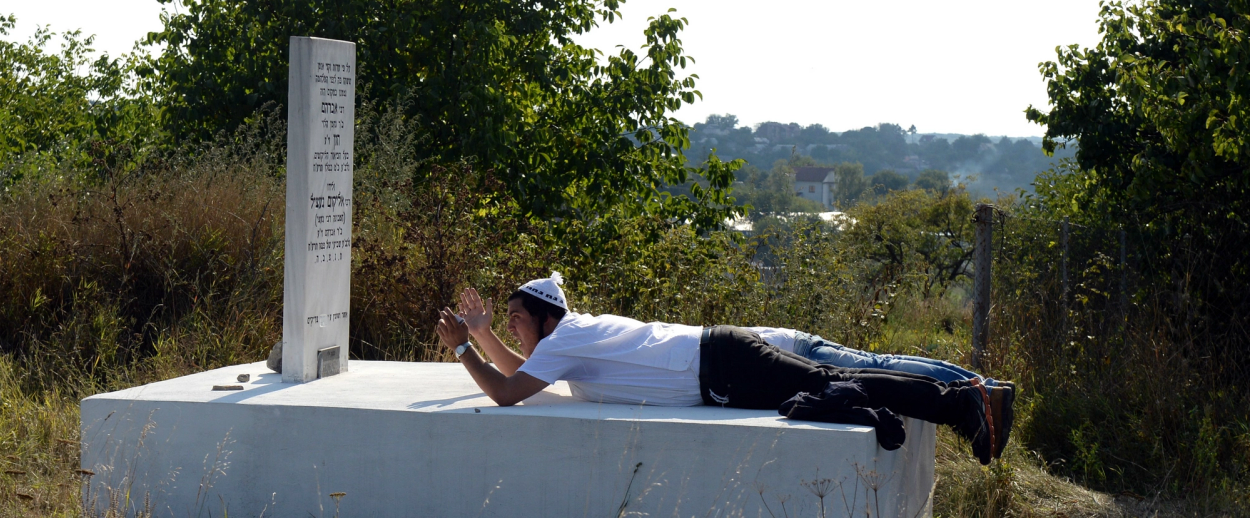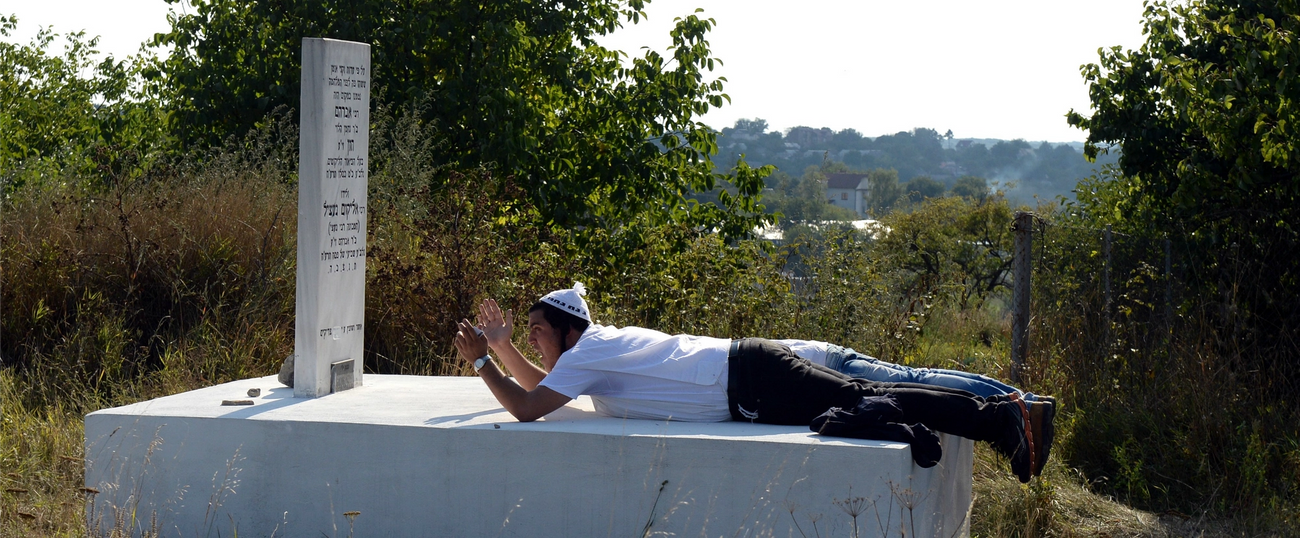Shul at Breslover Rebbe’s Grave Desecrated With Swastika-Carved Pig’s Head
Anti-Semitic tensions are rising in Uman, Ukraine




Ukrainian prosecutors have initiated a high level investigation into an attack and desecration of a synagogue near the burial ground of Rabbi Nachman of Breslov in the town of Uman, Ukraine. A group of unidentified men, variously referred to as ultra-nationalists or provocateurs, stormed the synagogue before dawn on Wednesday. They reportedly assaulted two pilgrims with tear gas, splattered red paint to resemble blood over the walls, and threw a severed pig’s head on the floor. The pig’s head had a swastika carved into its forehead. According to local reports reports several Israeli men were hospitalized.
The motive for this attack, and who perpetrated it, remain unclear at the time of publishing, though an investigation in ongoing. But it would be hard to ignore the fact that anti-Semitic tensions in Uman have been brewing for years, fueled in part by the rite of passage to the Breslover Rebbe’s grave that tens of thousands of Hasidim take part in every year. In fact, these episodic tensions between the local population and the occasionally riotous mysticism of the Hasidic pilgrims have become an annual journalistic ritual.
The city it will be recalled is both deeply dependent on—and resentful of—the cash coming from the pilgrims. In 2013, I reported on the scandal that erupted following the erection of a cross next to the lake where the Hasidim pray. The cross was defaced with Hebrew graffiti, and still stands to this day guarded by three Ukrainian security guards. Last year, there was an attack on a tent city during the annual Rosh Hashanah pilgrimage to the gravesite.
But unlike previous instances of tension and violence in Uman, which seemed to have a lesser or merely a local impact, on this occasion events seemed to have triggered something akin to a minor international incident. The multiple high-level Israeli officials issuing statements of condemnation against the attacks included Yesh Atid Chairman Yair Lapid, Deputy Minister of Foreign Affairs Tzipi Hotovely, opposition leader Isaac Herzog (he denounced the “anti-Semitic, heinous act”) and the Interior Minister Aryeh Deri. Herzog had already been slated to meet with Ukraine’s Jewish Prime Minister Volodymyr Groysman on his official visit to Israel at the beginning of the next week. Groysman is expected to report on increased security measures to be taken to defend the pilgrims.
The attacks were taken seriously at the highest level of international politics as well, with President Poroshenko’s loyalist Prosecutor General Yuri Lutsenko taking control of the investigation personally. Over Facebook his press secretary wrote: “The Prosecutor General of Ukraine Yuriy Lutsenko gave a directive to the Prosecutor of Cherkasy Region to take firm control over the investigation of the crime committed at the synagogue by the grave of Tzaddik Rabbi Nachman in Uman. Yuriy Lutsenko is giving the incident his personal attention, canceling the regional Prosecutor’s vacation and stressing that expressions of anti-Semitism and religious intolerance are unacceptable.”
As I have written before, the situation of Ukraine’s Jews and the relationship with contemporary Ukrainian patriotism as well as tropes of nationalism is a core issue of the political situation between Ukraine and Russia. In order to discredit Ukrainians, Russian state memory politics and rhetoric often portrays Ukraine as a hotbed of anti-Semitism in order to draw parallels between World War II events and the current conflict betwen Kiev and Moscow. Russia’s chief rabbi Berel Lazar chose to ascribe blame onto Ukraine’s law enforcement agencies “for condoning ultra-nationalists.”
It should be noted that relations between Israel and Ukraine in recent years have been quite strong. A series of conferences have just taken place in both Tel Aviv and Kiev. President Poroshenko made a high profile trip to Israel last year and the Israeli President Rivlin made a historic speech in the Ukrainian parliament, the Verkhovna Rada, on the occasion of the 75th anniversary of Babi Yar massacre at the end of September.
Previous: Tensions Build in Advance of Hasidic Pilgrimage
At Babi Yar Memorial, a Tenor of Somber Acknowledgement
Vladislav Davidzon is Tablet’s European culture correspondent and a Ukrainian-American writer, translator, and critic. He is the Chief Editor of The Odessa Review and a Non-Resident Fellow at the Atlantic Council. He was born in Tashkent, Uzbekistan, and lives in Paris.